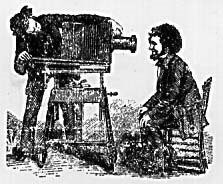In "The Impact of European theory" from A Cultural Studies Reader, the authors start by discussing the importance of Europe in the rise and development of Cultural Studies. Throughout the articles, Munns and Rajan, and Sardar and Van Loon, reiterate that Britain in particular had a fascination with its own culture, and they believed that above all they had set a "prototype for the world to follow," (52, Introducing Cultural Studies). This self-obsession, creates a biased toward other countries that do not hold the same values as the British, and therefore other "locations where the concerns and perspectives of the margins are seldom considered," (52, Introducing Cultural Studies). Overall, Munns and Rajan discuss many types of theories that originated in Europe that helped shaped the parameters of cultural studies, focusing on "structuralism, hegemony, semiotics (the system of signs), post-structuralism and deconstructionism." The impact that European theory had on the beginning of cultural studies despite being subjective, created a discipline that gave meaning to values, issues, and ideas pertaining to society.
1) Term from New Keywords, "Deconstruction"
New Keywords did not have the word form structuralism, so I looked up another common theory mentioned in the articles, and the most standard meaning of deconstruction is, "a movement of overturning or reversal of the asymmetrical binary hierarchies of metaphysical though, in such a way as to register the constitutive dependence of the major on the minor term; on the other, a movement beyond the framework delimited by these terms to an always provisional suspension of their force." (pg. 71)
2) Link to Wikipedia, Structuralism:
http://en.wikipedia.org/wiki/Structuralism
"Structuralism consist of analyzing social events to discover the structures that both underlie them and make them possible, which are then typically broken down into units, codes, rules of combination." Wikipedia provides further information about the history of structuralism and common uses throughout multiple disciplines.
3) Link to other source, Semiotics:
http://www.aber.ac.uk/media/Documents/S4B/sem01.html
Even though I did not discuss this to the fullest extent, the study of semiotics is a key theory present throughout cultural studies.
announcements
This blog was created by and for students in an Introduction to Cultural Studies class at the University of Washington. Through an investigation of urban experience and representation--in theory, in graphic novels and in our own "readings" of Seattle's University District--we considered the formation and history of cultural studies as an (anti)discipline, with a special emphasis on the questions, "What does cultural studies do, and how do you do cultural studies?"
If you'd like to know more about the class, the blog or our U-District artifact project, please contact Gabrielle Dean: gnodean@u.washington.edu.
If you'd like to know more about the class, the blog or our U-District artifact project, please contact Gabrielle Dean: gnodean@u.washington.edu.
Subscribe to:
Post Comments (Atom)
blog archive
-
▼
2008
(92)
-
▼
April
(35)
- Identity in City of Glass
- History of Origins: Race Studies
- History of Origins: Gender Studies
- History of Origins: Gender Studies
- History of Origins: America
- History of Origins: Race Studies
- History of Origins: Gender Studies
- History of Origins: Race Studies
- History of Origins: Race Studies
- History of Origins: Media and Science
- History of Origins: Media and Science
- History of Origins: Gender Studies
- History of Origins: Media and Science
- History of Origins: European Theory
- History of Origins: European Theory
- History of Origins: European Theory
- History of Origins: European Theory
- History of Origins: European Theory
- History of Origins: America
- History of Origins: European Theory
- History of Origins: America
- History of Orgins: European Theory
- History of Origins: European Theory
- History of Origins: Great Britain
- History of Origins: Great Britain
- Cultural Studies in Britain
- Cultural Studies in Britain
- History of Origins: General
- History of Origins: General
- History of Origins: General
- History of Origins: General
- "Orientalism"
- Are You an Author?
- "Paris, Capital of the 19th Century"
- READING: A WEB MODEL
-
▼
April
(35)

No comments:
Post a Comment